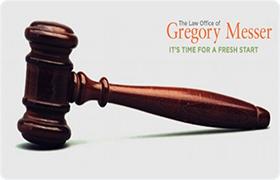Glen Oaks Credit & Debt Lawyer, New York
Sponsored Law Firm
-
 x
x

Click For More Info:
-
Law Offices of Gregory Messer
26 Court Street Suite 2400 Brooklyn, NY 11242» view mapBankruptcy & Debt It's Time For A Fresh Start
Experienced bankruptcy attorney Gregory Messer will work with you personally to set your mind at ease and relieve the strain you’re facing from personal or business debt.
800-887-8940
Jacqueline M. Della Chiesa
Bankruptcy & Debt, Foreclosure, Credit & Debt, Litigation
Status: In Good Standing
 Gregory Messer Brooklyn, NY
Gregory Messer Brooklyn, NY Practice AreasExpertise
Practice AreasExpertise
